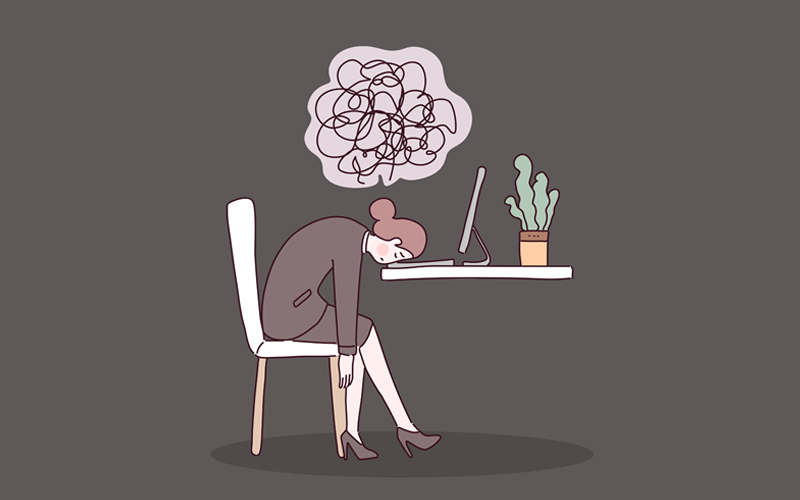BURNOUT FAQ

1. What are the signs that I might be experiencing burnout?
Burnout manifests in various ways, encompassing emotional, physical, and behavioural symptoms. Emotional signs may include feeling exhausted, detached, or cynical about work, while physical symptoms can range from headaches and insomnia to gastrointestinal issues. Behavioural indicators might involve decreased productivity, irritability, or withdrawing from social interactions.
2. Is burnout the same as stress?
While stress and burnout share similarities, they are distinct. Stress typically arises from external pressures and can often be managed with coping strategies. Burnout, however, is a state of chronic stress characterized by emotional exhaustion, a sense of detachment, and diminished performance. Unlike stress, burnout tends to develop gradually and can significantly impact overall well-being.
3. How can I differentiate between normal work stress and burnout?
Distinguishing between work stress and burnout involves considering the duration, intensity, and impact on various aspects of life. While stress may ebb and flow in response to specific events, burnout persists despite changes in workload or environment. Burnout affects not only work but also personal relationships and overall satisfaction with life.
4. What can I do if I suspect I'm experiencing burnout?
Acknowledging and addressing burnout requires proactive steps. Prioritize self-care by engaging in activities that promote relaxation and rejuvenation. Communicate openly with supervisors or colleagues about workload concerns and explore potential adjustments. Seeking support from friends, family, or a mental health professional can also provide valuable insight and coping strategies.
5. Can burnout affect my physical health?
Yes, burnout can have profound effects on physical health. Prolonged exposure to stress hormones can weaken the immune system, increase susceptibility to illness, and exacerbate pre-existing conditions such as cardiovascular disease. Additionally, the physical symptoms of burnout, such as headaches or gastrointestinal issues, can further contribute to overall discomfort and decreased well-being.
6. Should I take time off work if I'm experiencing burnout?
Taking time off work can be beneficial for addressing burnout, allowing for rest and rejuvenation. However, it's essential to consider the underlying causes of burnout and develop strategies to prevent its recurrence. Time away from work should be used constructively, focusing on self-care practices, seeking support, and implementing changes to promote long-term well-being.
7. Is it possible to recover from burnout?
Yes, recovery from burnout is achievable with dedication and support. It involves identifying and addressing contributing factors, implementing healthy coping mechanisms, and gradually rebuilding physical and emotional resilience. Recovery may also necessitate making changes to work habits, boundaries, or environments to prevent burnout from recurring in the future.
8. How can I prevent burnout in the future?
Preventing burnout requires a proactive approach to self-care and stress management. This includes prioritizing work-life balance, setting boundaries, and cultivating supportive relationships. Regularly engaging in activities that promote physical and emotional well-being, such as exercise, hobbies, and relaxation techniques, can also bolster resilience and mitigate the risk of burnout.
9. Should I consider changing jobs if I'm experiencing burnout?
While changing jobs may be a consideration if burnout persists despite efforts to address it, it's essential to assess the underlying causes and potential solutions before making any decisions. Reflect on factors contributing to burnout, such as workload, organizational culture, or career alignment, and explore opportunities for change within the current job before considering external options.
10. Is seeking therapy or counselling necessary for dealing with burnout?
Seeking therapy or counselling can be beneficial for addressing burnout, as it provides a supportive space to explore underlying issues, develop coping strategies, and cultivate resilience. However, it's not the only option, and individuals can also benefit from self- care practices, support from friends and family, and resources such as books or workshops aimed at managing stress and promoting well-being.
Managing Editor:
Section Editors:
Contributing Writers:
Copy Editors :
Technical Support :
Our Locations
Disclaimer: This website is for information purposes. This is NOT medical advice. Always do your own due diligence.
Quick Links
© GIPS Hospital . All Rights Reserved. Designed by PlusOneHMS







